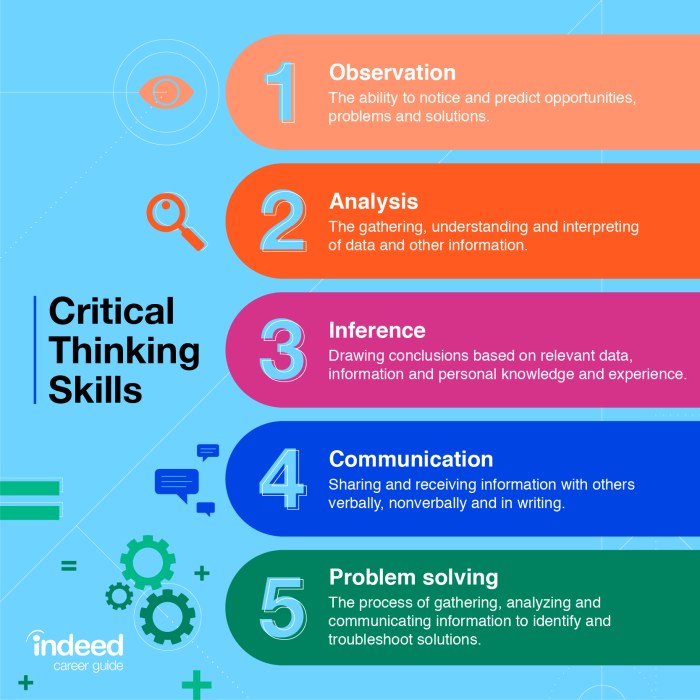In the healthcare industry, critical thinking skills are paramount for charge nurses. A charge nurse is preparing to discuss critical thinking skills, which are essential for making sound judgments and providing optimal patient care. This article will delve into the significance of critical thinking in nursing, explore strategies for developing these skills, and provide real-life examples of their application.
Critical thinking involves the ability to analyze information, evaluate evidence, and make informed decisions. It is a complex skill that requires practice and continuous development. Charge nurses, who are responsible for overseeing patient care and making crucial decisions, must possess a high level of critical thinking ability.
Critical Thinking Skills in Nursing: A Charge Nurse’s Perspective

Critical thinking skills are indispensable for charge nurses, who bear the responsibility of making critical decisions that impact patient care. These skills enable charge nurses to analyze situations, evaluate information, and make sound judgments in complex and dynamic healthcare environments.
Examples of critical thinking skills in action within a charge nurse’s role include:
- Identifying and prioritizing patient needs
- Assessing and interpreting patient data
- Developing and implementing care plans
- Troubleshooting and resolving patient problems
- Communicating effectively with patients, families, and other healthcare professionals
To develop and enhance critical thinking abilities, charge nurses can employ various strategies:
- Engage in reflective practice
- Seek opportunities for professional development
- Collaborate with colleagues and mentors
- Utilize critical thinking tools and resources
Assessing Critical Thinking in Nursing Practice
Assessing critical thinking skills in nursing is crucial for professional development and ensuring patient safety. Methods for assessment include:
- Observation of clinical performance
- Evaluation of written documentation
- Simulation exercises
- Psychometric testing
Tools and techniques for evaluating critical thinking performance include:
- Critical Thinking Assessment Tool (CAT)
- Critical Thinking Skills Inventory (CTSI)
- Watson-Glaser Critical Thinking Appraisal (WGCTA)
Regular assessment is essential for identifying areas for improvement and supporting professional growth.
Teaching and Fostering Critical Thinking

Teaching critical thinking skills to nurses requires a structured approach:
- Incorporate critical thinking exercises into nursing education programs
- Organize workshops or training programs focused on critical thinking development
- Create a supportive environment that encourages questioning, analysis, and problem-solving
To enhance critical thinking abilities, consider:
- Using case studies and simulations
- Facilitating group discussions and debates
- Providing constructive feedback and guidance
Case Studies and Examples of Critical Thinking in Nursing

Case studies provide valuable insights into how charge nurses apply critical thinking in practice:
- A charge nurse identifies a subtle change in a patient’s vital signs, recognizing it as a potential sign of sepsis and initiating prompt intervention.
- Another charge nurse effectively manages a complex patient with multiple comorbidities, prioritizing care and coordinating a multidisciplinary team to optimize outcomes.
These examples illustrate the positive impact of critical thinking on patient care.
Ethical Considerations in Critical Thinking: A Charge Nurse Is Preparing To Discuss Critical Thinking Skills
Critical thinking in nursing involves ethical considerations:
- Potential biases or limitations in critical thinking
- Responsibility of charge nurses to ensure ethical decision-making
- Ethical implications of utilizing technology for critical thinking
Charge nurses must be mindful of their ethical obligations and seek guidance when necessary to ensure patient well-being.
Technology and Critical Thinking in Nursing
Technology can support critical thinking in nursing:
- Clinical decision support systems provide evidence-based guidance
- Data analytics tools facilitate trend analysis and risk assessment
- Telehealth platforms enable remote patient monitoring and consultations
While technology offers benefits, it also presents challenges, such as information overload and potential bias. Charge nurses must critically evaluate the use of technology to ensure its alignment with ethical principles and patient care goals.
FAQ Overview
What are the key components of critical thinking in nursing?
Critical thinking in nursing involves analyzing patient data, identifying patterns, evaluating evidence, and making sound judgments. It also requires the ability to think creatively, solve problems, and communicate effectively.
How can charge nurses develop their critical thinking skills?
Charge nurses can develop their critical thinking skills through ongoing education, reflective practice, and peer collaboration. They can also participate in workshops and training programs designed to enhance their analytical and decision-making abilities.
Why is critical thinking important for charge nurses?
Critical thinking is essential for charge nurses because it enables them to make informed decisions, manage complex patient care situations, and provide high-quality care to their patients. It also helps them to identify and address potential risks and complications.